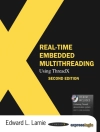Introduces readers to core algorithmic techniques for next-generation sequencing (NGS) data analysis and discusses a wide range of computational techniques and applications
This book provides an in-depth survey of some of the recent developments in NGS and discusses mathematical and computational challenges in various application areas of NGS technologies. The 18 chapters featured in this book have been authored by bioinformatics experts and represent the latest work in leading labs actively contributing to the fast-growing field of NGS. The book is divided into four parts:
Part I focuses on computing and experimental infrastructure for NGS analysis, including chapters on cloud computing, modular pipelines for metabolic pathway reconstruction, pooling strategies for massive viral sequencing, and high-fidelity sequencing protocols.
Part II concentrates on analysis of DNA sequencing data, covering the classic scaffolding problem, detection of genomic variants, including insertions and deletions, and analysis of DNA methylation sequencing data.
Part III is devoted to analysis of RNA-seq data. This part discusses algorithms and compares software tools for transcriptome assembly along with methods for detection of alternative splicing and tools for transcriptome quantification and differential expression analysis.
Part IV explores computational tools for NGS applications in microbiomics, including a discussion on error correction of NGS reads from viral populations, methods for viral quasispecies reconstruction, and a survey of state-of-the-art methods and future trends in microbiome analysis.
Computational Methods for Next Generation Sequencing Data Analysis:
* Reviews computational techniques such as new combinatorial optimization methods, data structures, high performance computing, machine learning, and inference algorithms
* Discusses the mathematical and computational challenges in NGS technologies
* Covers NGS error correction, de novo genome transcriptome assembly, variant detection from NGS reads, and more
This text is a reference for biomedical professionals interested in expanding their knowledge of computational techniques for NGS data analysis. The book is also useful for graduate and post-graduate students in bioinformatics.
विषयसूची
CONTRIBUTORS xix
PREFACE xxiii
ABOUT THE COMPANION WEBSITE xxv
PART I COMPUTING AND EXPERIMENTAL INFRASTRUCTURE FOR NGS 1
1 Cloud Computing for Next-Generation Sequencing Data Analysis 3
Xuan Guo, Ning Yu, Bing Li, and Yi Pan
2 Introduction to the Analysis of Environmental Sequence Information Using Metapathways 25
Niels W. Hanson, Kishori M. Konwar, Shang-Ju Wu, and Steven J. Hallam
3 Pooling Strategy for Massive Viral Sequencing 57
Pavel Skums, Alexander Artyomenko, Olga Glebova, Sumathi Ramachandran, David S. Campo, Zoya Dimitrova, Ion I. Mândoiu, Alexander Zelikovsky, and Yury Khudyakov
4 Applications of High-Fidelity Sequencing Protocol to RNA Viruses 85
Serghei Mangul, Nicholas C. Wu, Ekaterina Nenastyeva, Nicholas Mancuso, Alexander Zelikovsky, Ren Sun, and Eleazar Eskin
PART II GENOMICS AND EPIGENOMICS 105
5 Scaffolding Algorithms 107
Igor Mandric, James Lindsay, Ion I.Mândoiu, and Alexander Zelikovsky
6 Genomic Variants Detection and Genotyping 133
Jorge Duitama
7 Discovering and Genotyping Twilight Zone Deletions 149
Tobias Marschall and Alexander Schönhuth
8 Computational Approaches for Finding Long Insertions and Deletions with NGS Data 175
Jin Zhang, Chong Chu, and Yufeng Wu
9 Computational Approaches in Next-Generation Sequencing Data Analysis for Genome-Wide DNA Methylation Studies 197
Jeong-Hyeon Choi and Huidong Shi
10 Bisulfite-Conversion-Based Methods for DNA Methylation Sequencing Data Analysis 227
Elena Harris and Stefano Lonardi
PART III TRANSCRIPTOMICS 245
11 Computational Methods for Transcript Assembly from RNA-SEQ Reads 247
Stefan Canzar and Liliana Florea
12 An Overview And Comparison of Tools for RNA-Seq Assembly 269
Rasiah Loganantharaj and Thomas A. Randall
13 Computational Approaches for Studying Alternative Splicing in Nonmodel Organisms From RNA-SEQ Data 287
Sing-Hoi Sze
14 Transcriptome Quantification and Differential Expression From NGS Data 301
Olga Glebova, Yvette Temate-Tiagueu, Adrian Caciula, Sahar Al Seesi, Alexander Artyomenko, Serghei Mangul, James Lindsay, Ion I. M?andoiu, and Alexander Zelikovsky
PART IV MICROBIOMICS 329
15 Error Correction of NGS Reads from Viral Populations 331
Pavel Skums, Alexander Artyomenko, Olga Glebova, David S. Campo, Zoya Dimitrova, Alexander Zelikovsky, and Yury Khudyakov
16 Probabilistic Viral Quasispecies Assembly 355
Armin Töpfer and Niko Beerenwinkel
17 Reconstruction of Infectious Bronchitis Virus Quasispecies from NGS Data 383
Bassam Tork, Ekaterina Nenastyeva, Alexander Artyomenko, Nicholas Mancuso, Mazhar I. Khan, Rachel O’Neill, Ion I. Mândoiu, and Alexander Zelikovsky
18 Microbiome Analysis: State of the Art and Future Trends 401
Mitch Fernandez, Vanessa Aguiar-Pulido, Juan Riveros, Wenrui Huang, Jonathan Segal, Erliang Zeng, Michael Campos, Kalai Mathee, and Giri Narasimhan
INDEX 425
लेखक के बारे में
Ion Mandoiu, Ph D, is an associate professor in the Computer Science and Engineering Department at the University of Connecticut, USA. His main research interests are in the design and analysis of approximation algorithms for NP-hard optimization problems, particularly in the area of bioinformatics. Dr. Mandoiu has authored over 100 refereed articles in journals and conference proceedings. He has also co-edited (with A. Zelikovsky) a book on Bioinformatics Algorithms: Techniques and Applications (Wiley 2008).
Alexander Zelikovsky, Ph D, is a Distinguished University Professor with the Computer Science Department at the Georgia State University, USA. His research focuses on discrete algorithms and their applications in computational biotechnology and biology, bioinformatics, VLSI CAD, and wireless networks. Dr. Zelikovsky has authored more than 170 refereed publications. He served as the co-Chair of International Symposium on Bioinformatics Research and Applications (2005-2016) and the Workshop on Computational Advances in Next-Generation Sequencing (2011-2015).












